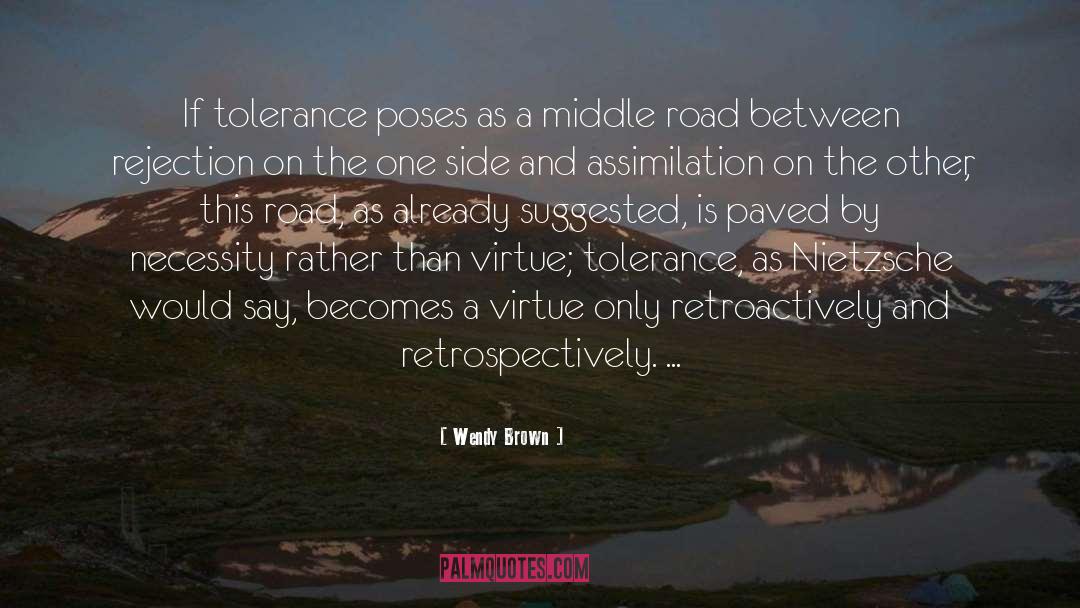Wendy Brown Famous Quotes
Reading Wendy Brown quotes, download and share images of famous quotes by Wendy Brown. Righ click to see or save pictures of Wendy Brown quotes that you can use as your wallpaper for free.
Tolerated individuals will always be those who deviate from the norm, never those who uphold it, but they will also be further articulated as (deviant) individuals through the very discourse of tolerance.
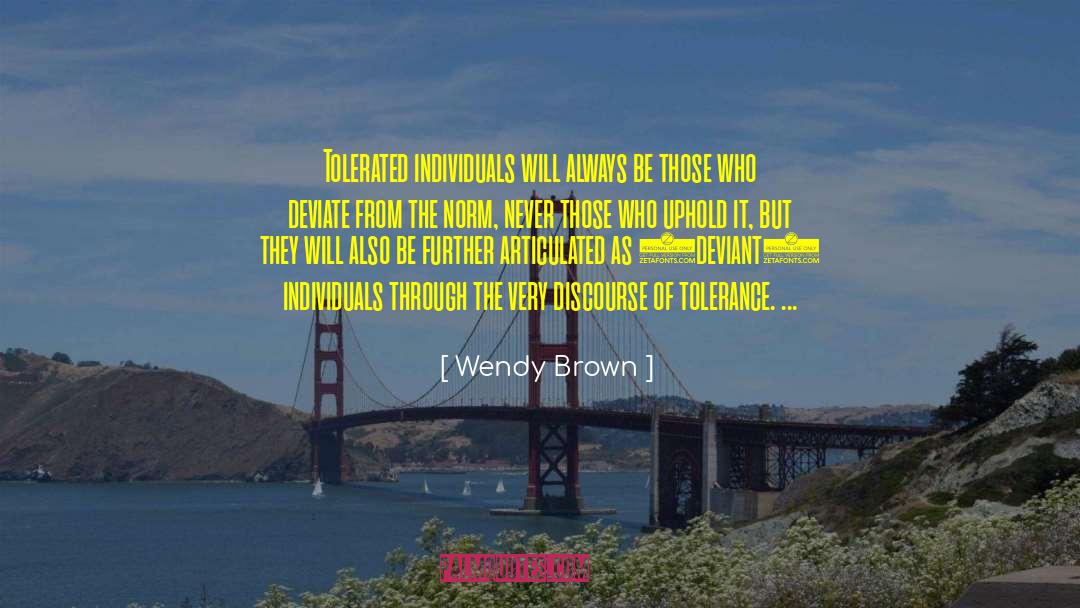
Depoliticization involves removing a political phenomenon from comprehension of its historical emergence and from a recognition of the powers that produce and contour it. No matter its particular form and mechanics, depoliticization always eschews power and history in the representation of its subject. When these two constitutive sources of social relations and political conflict are elided, an ontological naturalness or essentialism almost inevitably takes up residence in our understandings and explanations. In the case at hand, an object of tolerance analytically divested of constitution by history and power is identified as naturally and essentially different from the tolerating subject; in this difference, it appears as a natural provocation to that which tolerates it. Moreover, not merely the parties to tolerance but the very scene of tolerance is naturalized, ontologized in its constitution as produced by the problem of difference itself.
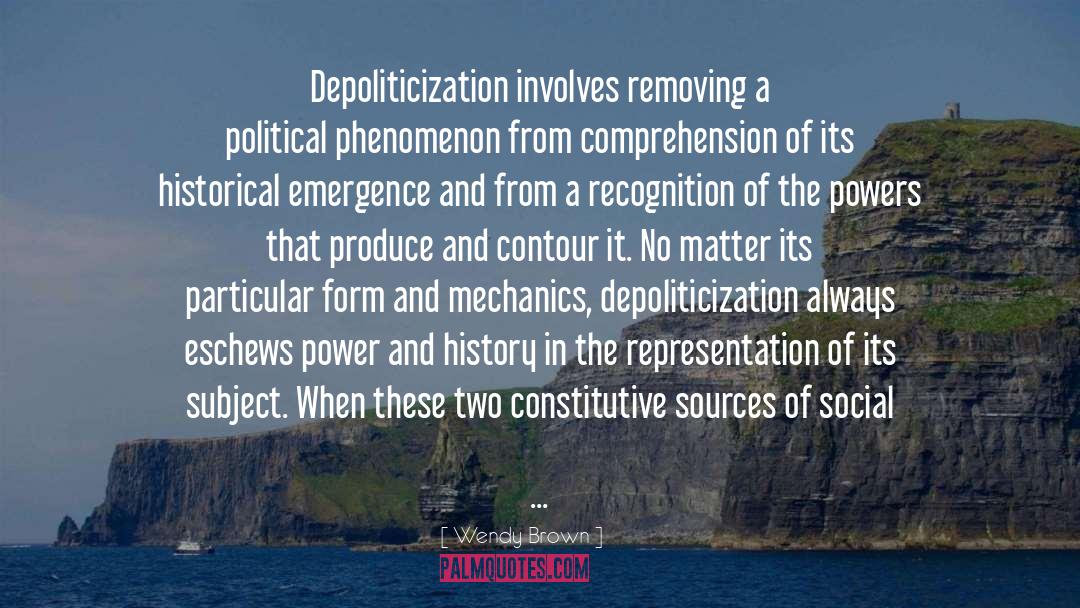
The culturalization of politics analytically vanquishes political economy, states, history, and international and transnational relations. It eliminates colonialism, capital, caste or class stratification, and external political domination from accounts of political conflict or instability. In their stead, "culture" is summoned to explain the motives and aspirations leading to certain conflicts
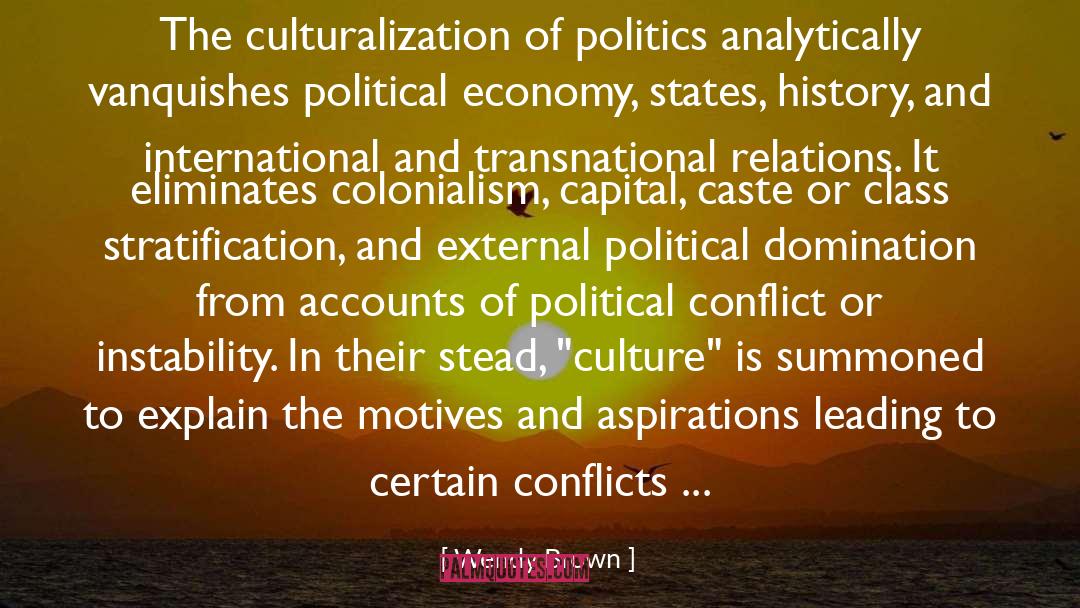
We have now come to a quite insidious edge in contemporary tolerance discourse. By converting the effects of inequality - for example, institutionalized racism - into a matter of "different practices and beliefs," this discourse masks the working of inequality and hegemonic culture as that which produces the differences it seeks to protect. As it essentializes difference and reifies sexuality, race, and ethnicity at the level of ideas and practices, contemporary tolerance discourse covers over the workings of power and the importance of history in producing the differences called sexuality, race, and ethnicity. It casts those culturally produced differences as innate or given, as matters of nature that divide the human species rather than as sites of inequality or domination.
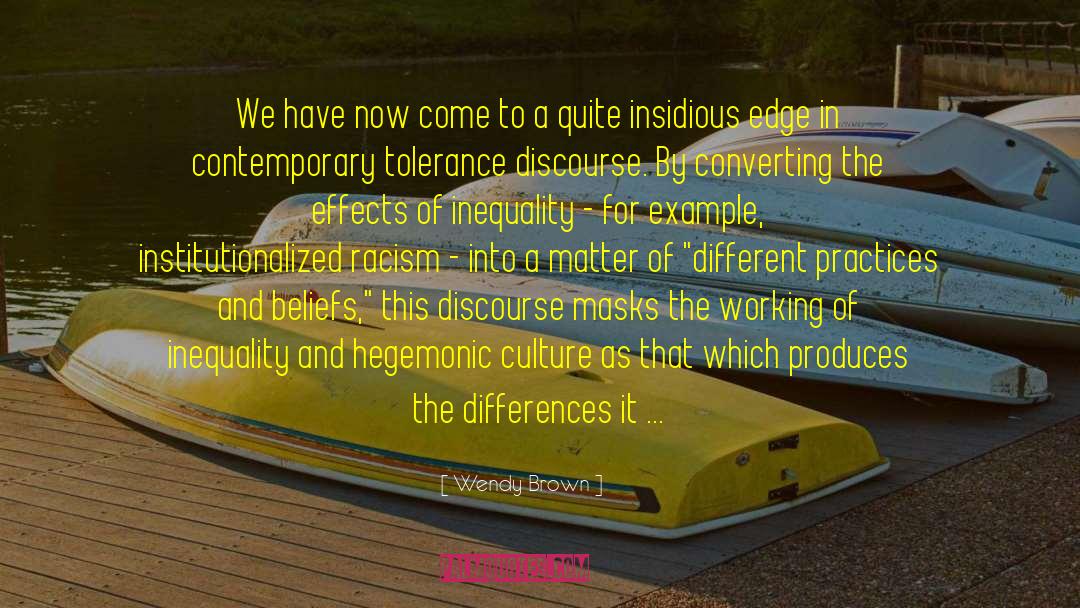
Moreover, since (as chapters 3 and 5 will argue) tolerance requires that the tolerated refrain from demands or incursions on public or political life that issue from their "difference," the subject of tolerance is tolerated only so long as it does not make a political claim, that is, so long as it lives and practices its "difference" in a depoliticized or private fashion. In addition to being at odds with the epistemological and political stance to which many politicized identities aspire, this requirement also results in the discursive suppression of the social powers that constitute "difference" as well as in the strengthening of the hegemony of unmarked cultures, ethnicities, races, or sexualities;
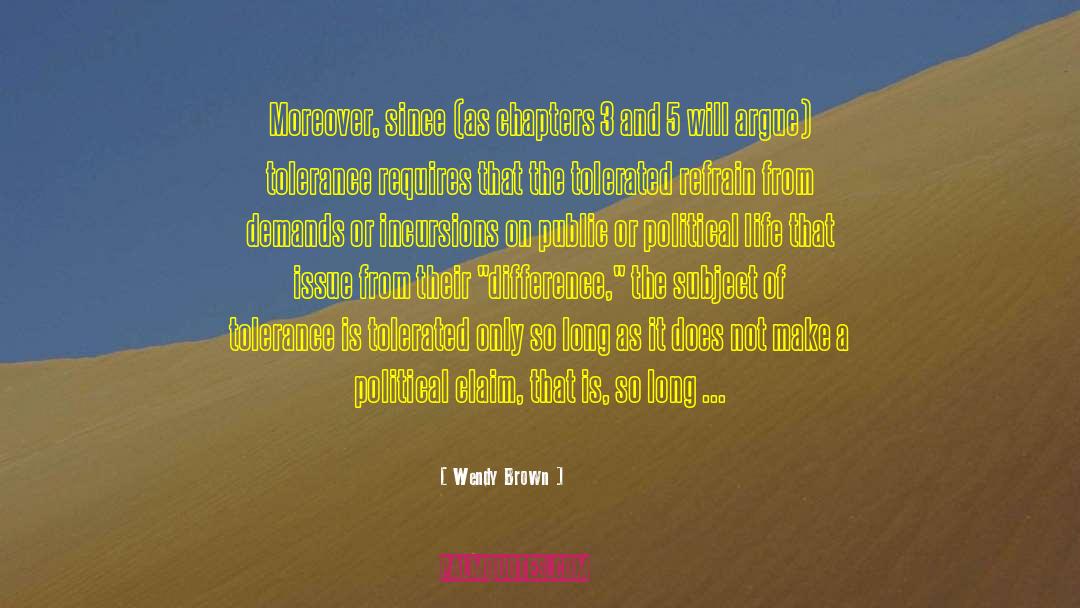
This effort [to establish racism, sexism and homophobia as morally heinous in law] also casts the law in particular and the state more generally as neutral arbiters of injury rather than as themselves invested with the power to injure. Thus, the effort to "outlaw" social injury powerfully legitimizes law and the state as appropriate protectors against injury and casts injured individuals as needing such protection by such protectors.
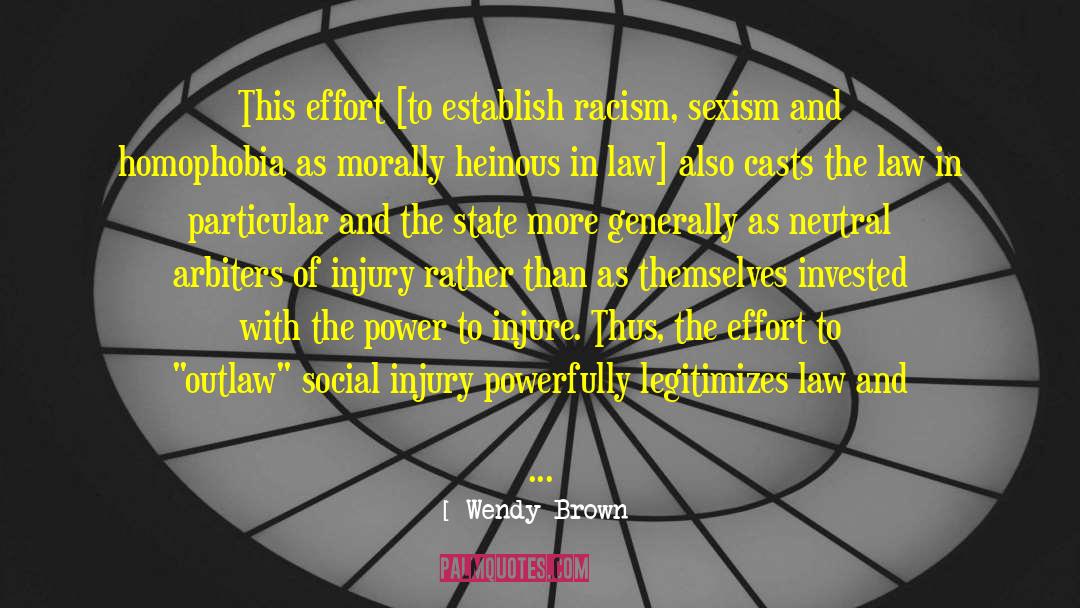
Depoliticization involves construing inequality, subordination, marginalization, and social conflict, which all require political analysis and political solutions, as personal and individual, on the one hand, or as natural, religious, or cultural on the other. Tolerance works along both vectors of depoliticization - it personalizes and it naturalizes or culturalizes - and sometimes it intertwines them. Tolerance as it is commonly used today tends to cast instances of inequality or social injury as matters of individual or group prejudice.
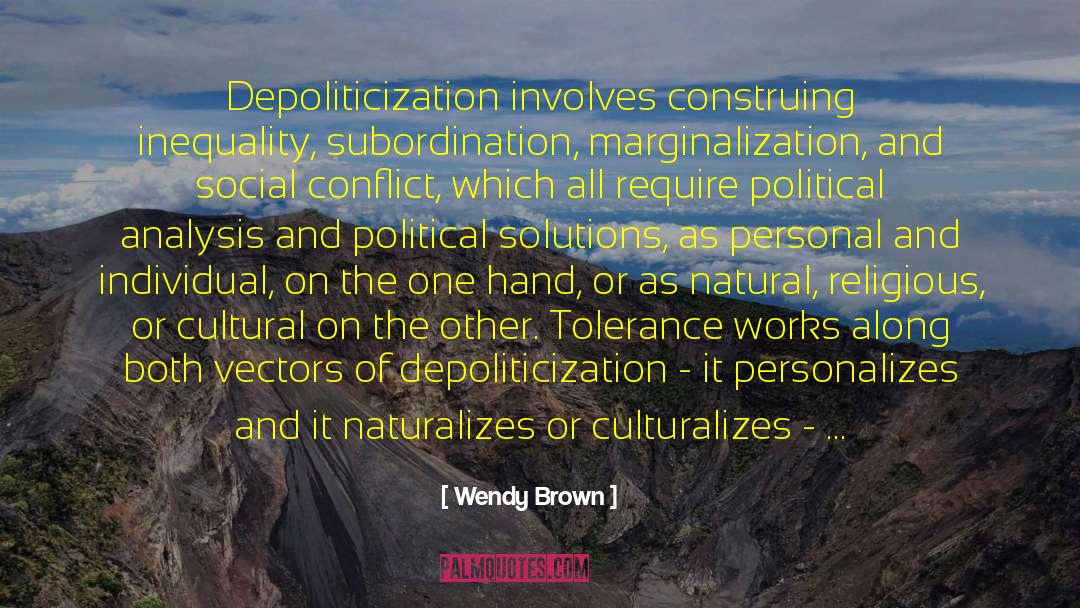
As neoliberalism wages war on public goods and the very idea of a public, including citizenship beyond membership, it dramatically thins public life without killing politics. Struggles remain over power, hegemonic values, resources, and future trajectories. This persistence of politics amid the destruction of public life and especially educated public life, combined with the marketization of the political sphere, is part of what makes contemporary politics peculiarly unappealing and toxic - full of ranting and posturing, emptied of intellectual seriousness, pandering to an uneducated and manipulable electorate and a celebrity-and-scandal-hungry corporate media. Neoliberalism generates a condition of politics absent democratic institutions that would support a democratic public and all that such a public represents at its best: informed passion, respectful deliberation, aspirational sovereignty, sharp containment of powers that would overrule or undermine it.

In addition to depoliticization as a mode of dispossessing the constitutive histories and powers organizing contemporary problems and contemporary political subjects - that is, depoliticization of sources of political problems - there is a second and related meaning of depoliticization with which this book is concerned: namely, that which substitutes emotional and personal vocabularies for political ones in formulating solutions to political problems. When the ideal or practice of tolerance is substituted for justice or equality, when sensitivity to or even respect for the other is substituted for justice for the other, when historically induced suffering is reduced to "difference" or to a medium of "offense," when suffering as such is reduced to a problem of personal feeling, then the field of political battle and political transformation is replaced with an agenda of behavioral, attitudinal, and emotional practices. While such practices often have their value, substituting a tolerant attitude or ethos for political redress of inequality or violent exclusions not only reifies politically produced differences but reduces political action and justice projects to sensitivity training, or what Richard Rorty has called an "improvement in manners." A justice project is replaced with a therapeutic or behavioral one.
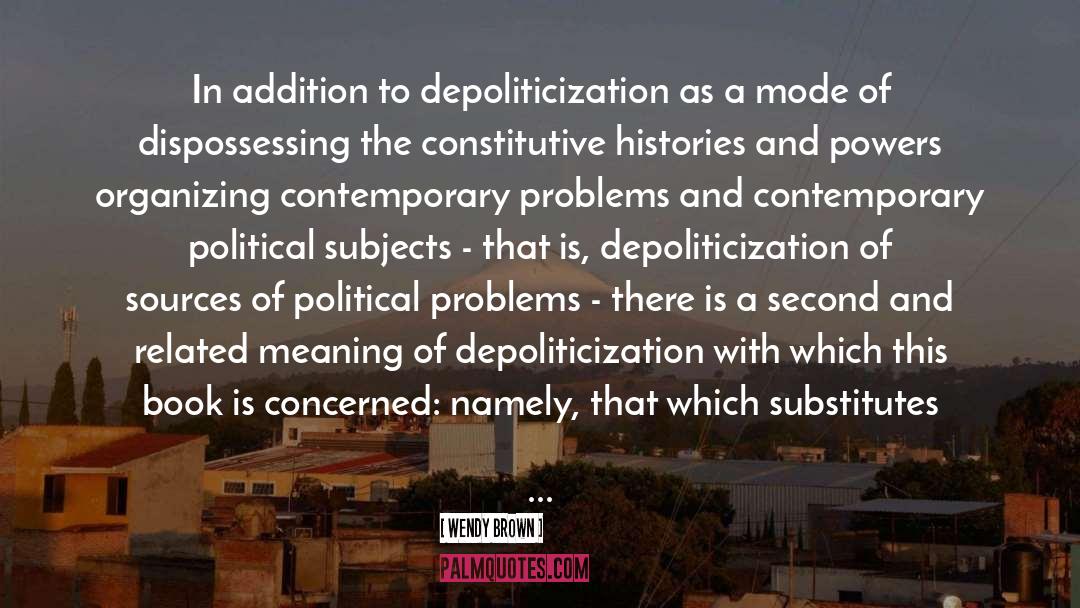
Despite its pacific demeanor, tolerance is an internally unharmonious term, blending together goodness, capaciousness, and conciliation with discomfort, judgment, and aversion. Like patience, tolerance is necessitated by something one would prefer did not exist. It involves managing the presence of the undesirable, the tasteless, the
faulty - even the revolting, repugnant, or vile. In this activity of management, tolerance does not offer resolution or transcendence, but only a strategy for coping.
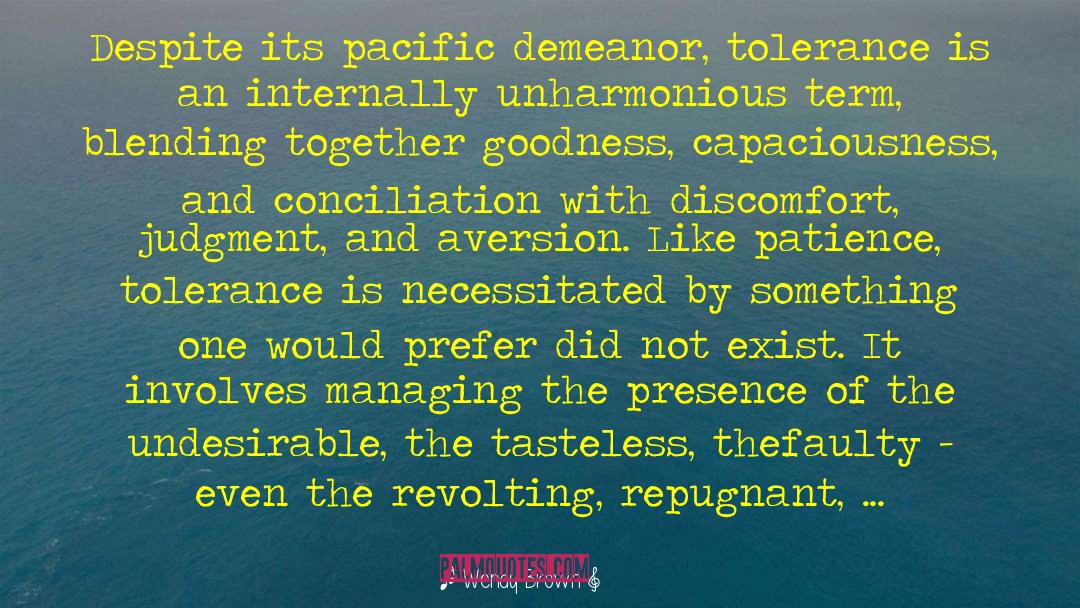
The popular contemporary wisdom that a liberal arts education is outmoded is true only to the extent that social equality, liberty, and worldly development of mind and character are outmoded and have been displaced by another set of metrics: income streams, profitability, technological innovation.
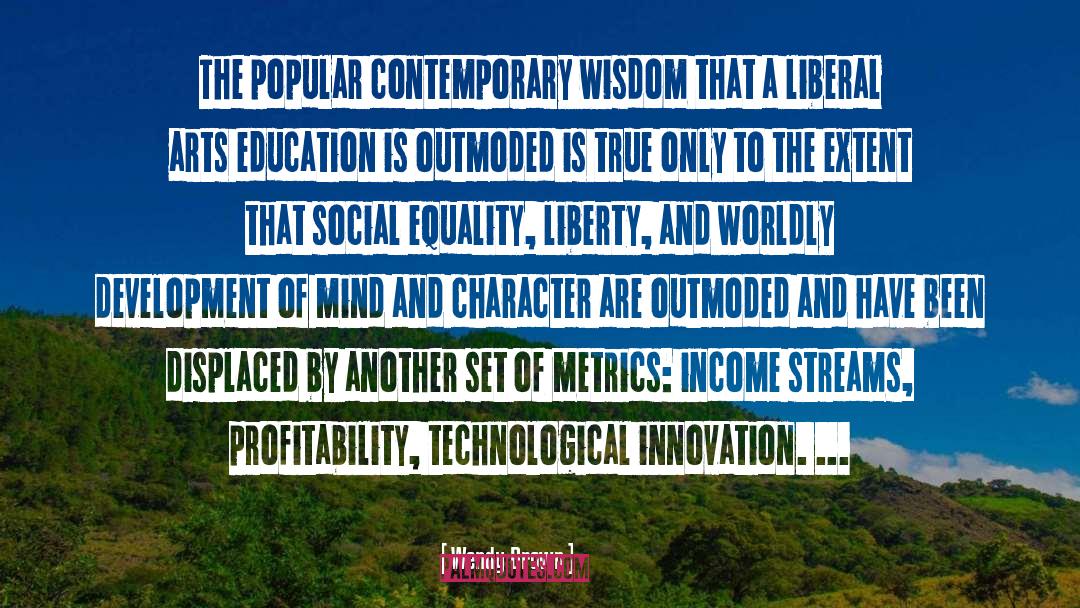
Whether one is dealing with the state, the Mafia, parents, pimps, police, or husbands, the heavy price of institutionalised protection is always a measure of dependence and agreement to abide by the protector's rules
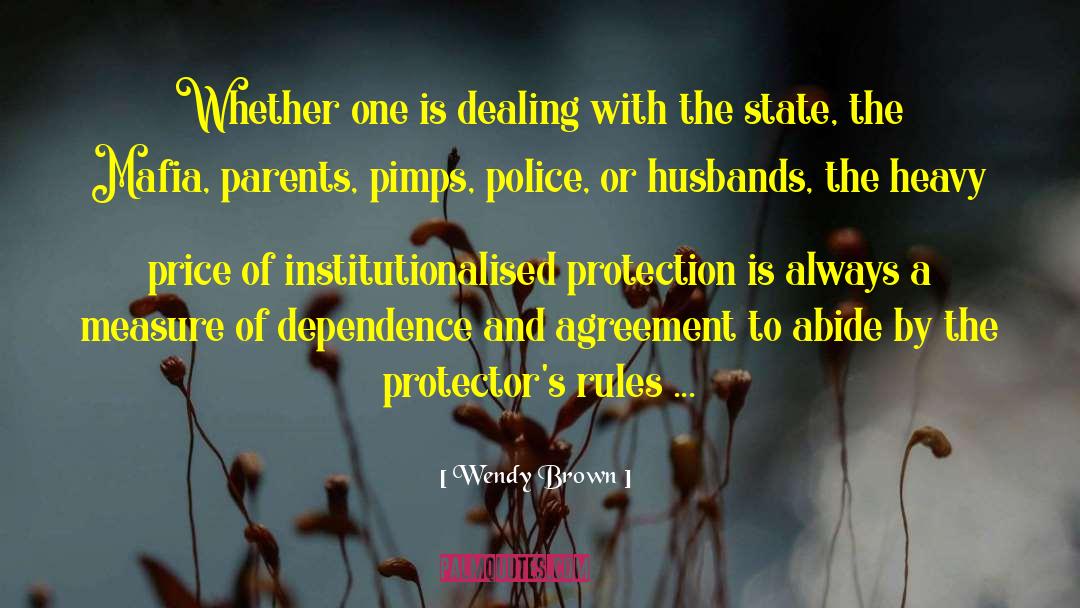
Designated objects of tolerance are invariably marked as undesirable and marginal, as liminal civil subjects or even liminal humans; and those called upon to exercise tolerance are asked to repress or override their hostility or repugnance in the name of civility, peace, or progress. Psychically, the former is the material of abjection and one variety of resentment (that associated with exclusion); the latter is the material of repressed aggression and another variety of resentment (that associated with forsworn strength or domination).
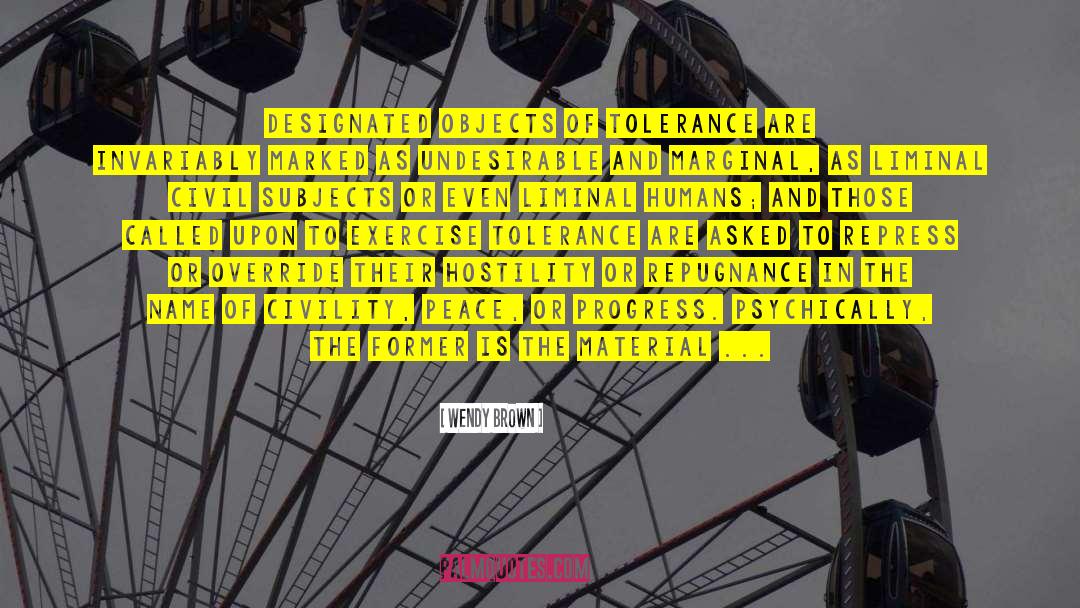
If tolerance poses as a middle road between rejection on the one side and assimilation on the other, this road, as already suggested, is paved by necessity rather than virtue; tolerance, as Nietzsche would say, becomes a virtue only retroactively and retrospectively.
